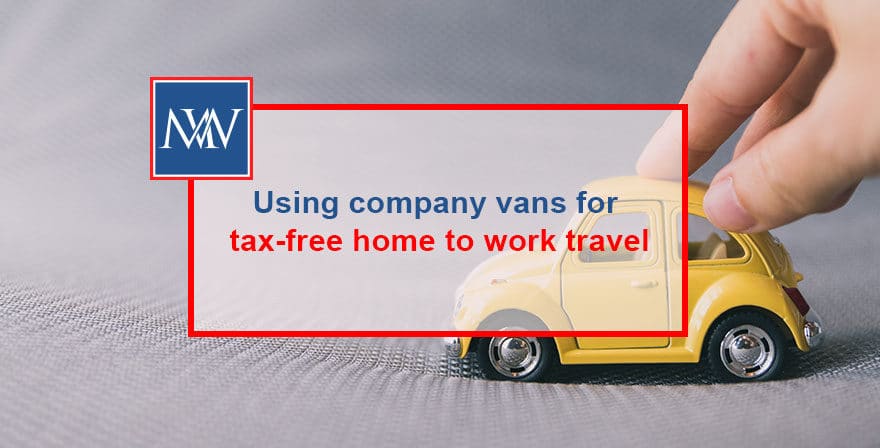
Using company vans for tax-free home to work travel
As a general rule, travel between home and work is regarded as a private travel and if the employer meets the cost of that travel, a benefit-in-kind tax charge will be triggered. However, it is possible for employees with a company van to use that van to travel between home and work, and for the employer to meet the cost of fuel for such journeys, without a tax charge arising. However, as with most tax exemptions, there are stringent conditions to be met.
Tax charge on company vans
Where an employee has the use of a company van and private use of that van is unrestricted, a tax charge arises. The amount charged to tax is £3,420 for 2019/20. This gives rise to a tax bill of £684 for a basic rate taxpayer, £1,368 for a higher rate taxpayer and £1,539 for an additional rate taxpayer. Where fuel is also provided, a separate fuel charge applies; the taxable amount is set at £655 for 2019/20.
No charge arises if the van is used only for business journeys or in respect of vans that meet the conditions to be regarded as a pool van.
Restricted private use
It is also possible to escape a tax charge but to be able to use the van for the home to work travel if a condition – known as the ‘restricted private use condition’ – is met. This comprises two parts:
- the commuter use requirement
- the business travel requirement
The commuter use requirement is met if:
- the terms on which the van is made available to the employee prohibit private use other than for the purposes of travel between home and work (‘ordinary commuting’) or travel between two places where the journey is essentially the same as the home to work journey
- neither the employee or the members of the employee’s family or household make private use of the van other than those purposes
It should be noted that insignificant private use, such as occasionally using the van to take something to the tip, is disregarded.
The second requirement is the business travel requirement. This is met if the van is available to the employee mainly for use for the purposes of the employee’s business travel. That is to say, the main reason that the employee has the van is because they need it for their job. The business travel requirement must be met at all times when the van is available to the employee.
If the provision of the van is exempt, no fuel benefit arises, even if the employer meets the cost of the home to work travel.
Example
Tony is a delivery driver. He is provided with a van by his employer for use in his work. He is allowed to take the van home at night and use it to drive to and from work. However, all other private use is prohibited. His employer pays for all fuel, including that for his journey between home and work.
As the restricted private use condition is met, there is no tax to pay on either the provision of the van or the fuel.
For more information, Book a Free Consultation
Our Offices
Makesworth Accountants in Harrow
Cervantes House, 5-9 Headstone Road,,
Fax: 020 7183 5320
Email: info@makesworth.co.uk
Need Accountancy Support?
For information on bespoke training, or if you have any other questions for Makesworth Accountant, please fill in your details below
















 151
151